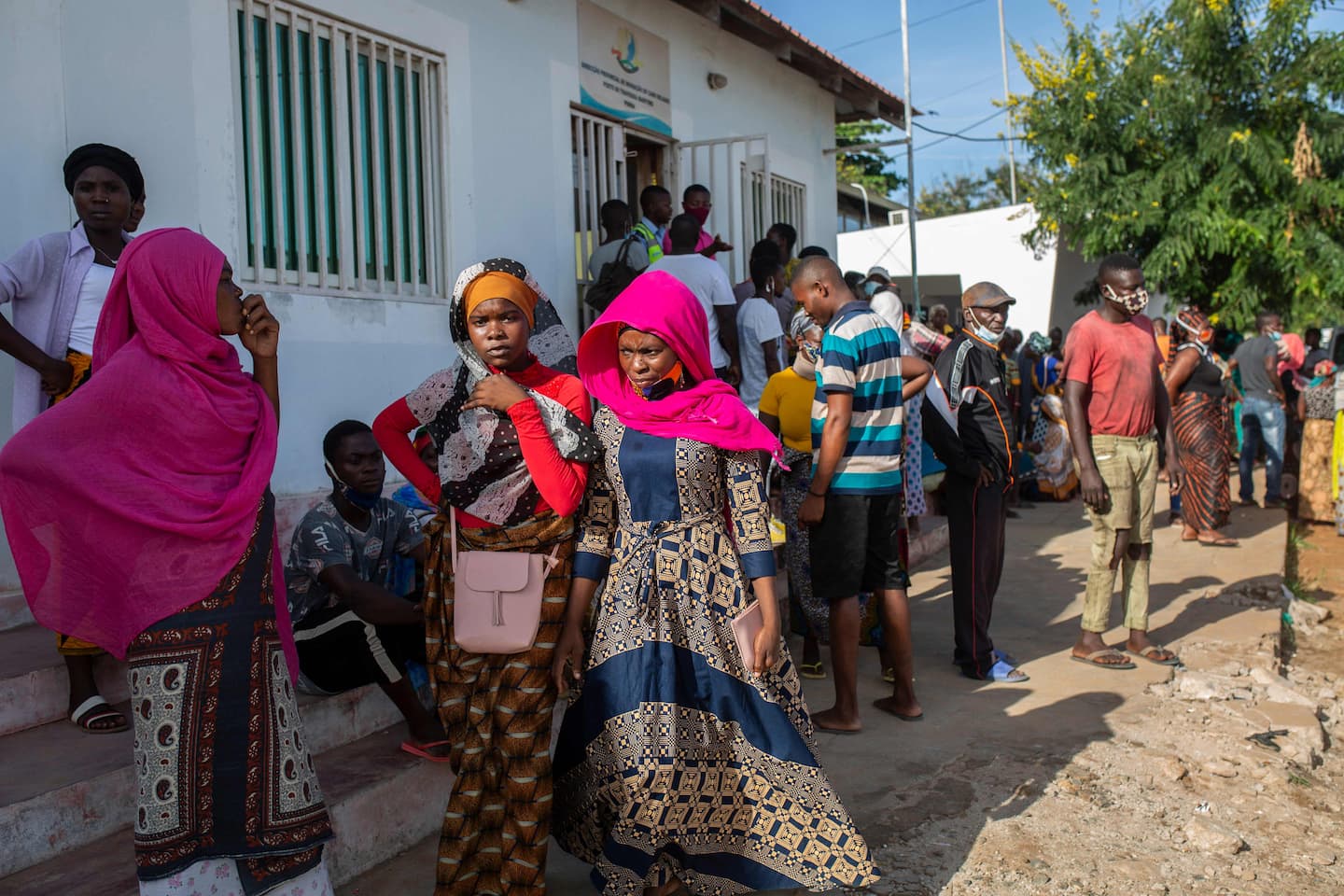As militants overrun Mozambique oil town, fears rise of ‘humanitarian catastrophe’

The group’s latest assault was on the Cabo Delgado town of Palma, which is at the center of $60 billion worth of offshore oil projects near Mozambique’s border with Tanzania. Defense Ministry officials acknowledged Sunday that the besieged town remained contested. The military was still attempting to “eliminate some pockets of resistance,” the ministry said.
But the government has for years played down the insurgency’s threat — deflections that have come under increased scrutiny as harrowing details of the Palma attack come to light. Besides a provisional toll, officials have remained largely silent on what by other accounts was a significant attack on one of Mozambique’s most economically important towns.
“It’s a week after the attack, and the president still hasn’t said anything. No information, no solidarity with the victims, and the statements they have issued barely even mention that this happened,” said Tomás Queface, a Mozambique-based expert and faculty member at the University of Sussex. “But if Palma can fall, then everyone in Cabo Delgado understands that no one there is safe. Everyone is on the move. It’s a major humanitarian catastrophe.”
The impoverished region of Mozambique has long held the ingredients for conflict, Queface and others said. The marginalization of minority groups has been exacerbated by the arrival of thousands of workers from outside the region for the oil projects, and has deepened a sense of abandonment and fueled recruitment by the militants.
What started as a slapdash insurgency armed with blunt weapons is metastasizing into a gun-toting group of at least hundreds of fighters that can mount coordinated attacks, seemingly acting on foreknowledge of the Mozambican army’s movements.
The U.S. government recently designated what it called ISIS-Mozambique as a terrorist group and imposed sanctions against its alleged leader, in addition to sending a dozen Army green berets to train Mozambican soldiers. Portugal also announced it was sending around 60 military trainers.
To some analysts, the designation heralds a militarization of a conflict that ultimately has local, economic roots and may only be inflamed by an influx of foreign troops.
“The group has now been elevated into a box where policy solutions designed to deal with this problem will now be partially framed or qualified by that designation,” said Dino Mahtani, deputy director of the Africa program at the International Crisis Group, who recently visited Mozambique.
The militancy, which sometimes refers to itself as al-Shabaab, has adopted brutal tactics that are similar to those employed by the Islamic State, including mass beheadings. In November, regional Police Commander Bernardino Rafael told The Washington Post that as many as 50 people had been decapitated in the first half of that month alone. The U.S. government says the group has killed at least 2,300 people and forced 670,000 to flee their homes since forming. Other estimates — including from the conflicting monitoring site Cabo Ligado — put the death toll slightly higher.
The attack on Palma was one of its biggest yet. Witness accounts provided by aid organizations depicted a chaotic attempt to evacuate hundreds of workers, both foreign and local, employed at the oil plants. Helicopters hired by private security companies descended into the town amid spurts of gunfire but managed to evacuate only a small portion of workers.
Others in the town fled into the surrounding countryside, or to beaches where they desperately waited to be rescued by private boats. No reports indicated the government played a role in the rescue effort. Mozambique’s information ministry did not respond immediately to a request for comment on continued efforts to control the town.
Pemba, the provincial capital, has seen an influx of tens of thousands since the attack on Palma began last Wednesday. Queface said it was reasonable to expect that many from elsewhere in Cabo Delgado would arrive there seeking shelter over the coming days. Aid organizations are filling a gap in supporting arrivals with food, water and housing that the government has said it cannot provide.
Meanwhile, Palma remains under attack. On a government-organized trip to the town’s outskirts on Tuesday, journalists came under fire. With the town’s communications cut off by the militants, there was no clear picture of how many people have been killed and how much of the town destroyed.
The government has largely prevented journalists and human rights investigators from accessing the region since the conflict began. Groups such as Amnesty International and Human Rights Watch have alleged that both government forces and private security contractors, who are mostly from neighboring South Africa, are implicated in abuses against civilians.
The conflict is also a sensitive issue because it poses such a risk to Mozambique’s prized oil industry, revenue from which forms the basis for much of the government’s ambitious development budget. Closing or suspending the oil projects would be a devastating setback to the government. Total, a French oil company, said on Sunday that it was postponing the reopening of its operations, which had already been suspended because of earlier violence.






